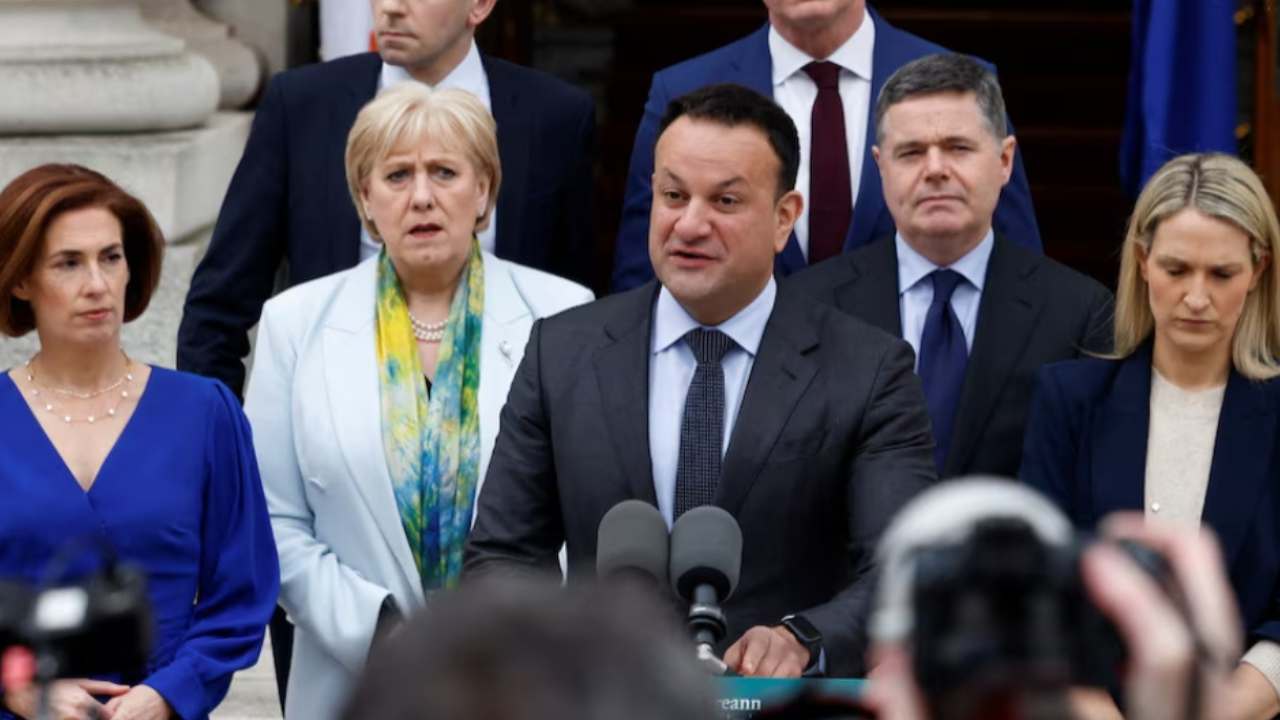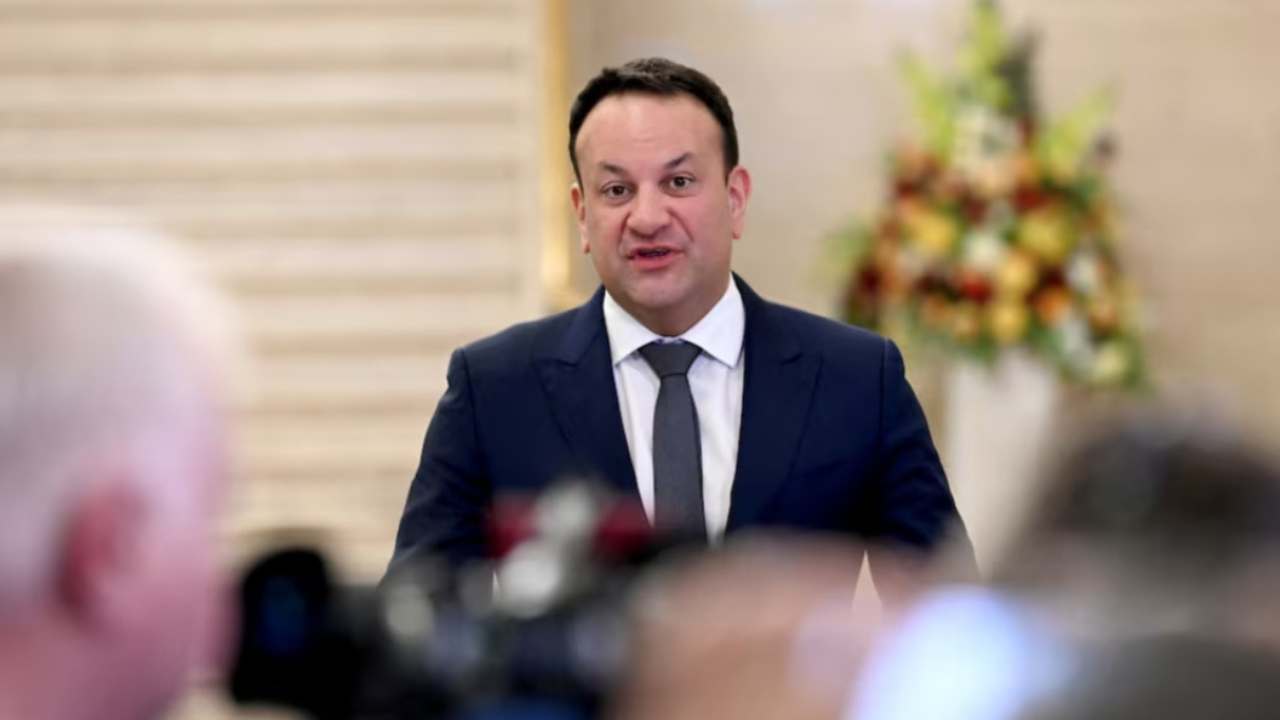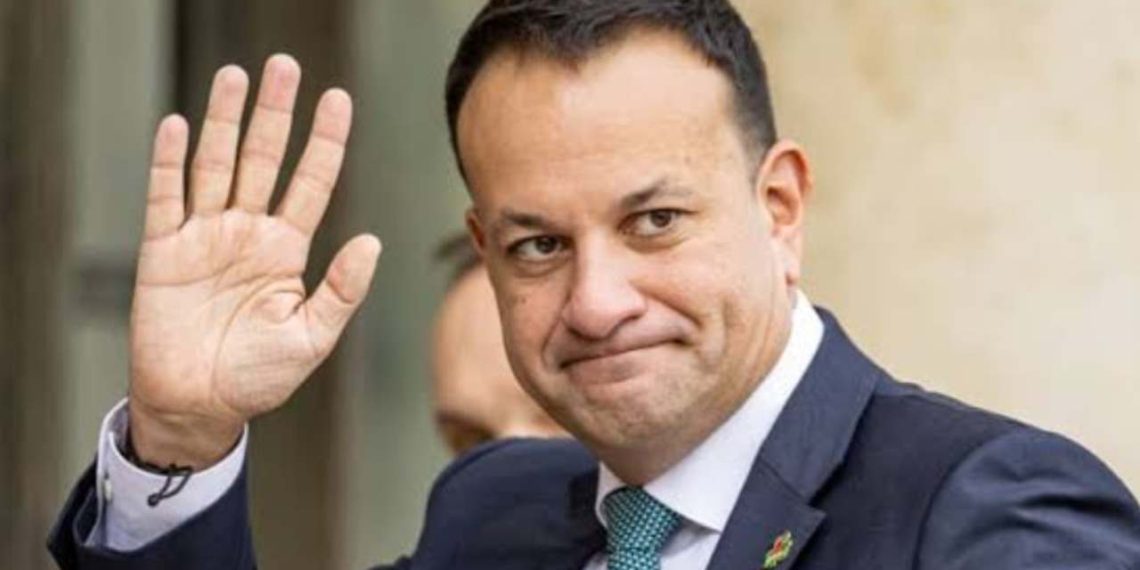Leo Varadkar’s surprise announcement on Wednesday revealed his decision to step down as Ireland’s prime minister, citing a potential for better electoral prospects under a different leader for the country’s coalition government.
In a strategic move, Varadkar’s Fine Gael party plans to initiate the process of selecting a new leader on Thursday, with the outcome slated for announcement on April 5th.
Following this, Parliament is scheduled to convene on April 9th after the Easter recess to vote on the successor who will assume the role of prime minister.
The unexpected departure of Varadkar, who made history as Ireland’s first gay prime minister in 2017 and resumed office just 15 months ago, does not prompt an immediate general election. However, a vote is mandated to take place by March 2025.

“My reasons for stepping down are both personal and political,” Varadkar, 45, told a hastily arranged news conference at government buildings in Dublin, sounding emotional as he spoke.
“But after careful consideration, and some soul searching, I believe that a new Taoiseach (prime minister) and a new leader will be better placed than me to achieve (the coalition government’s re-election).”
The incoming leader will face the challenge of bridging the significant opinion poll gap that both Fine Gael and their key coalition partner Fianna Fail have with the main opposition party Sinn Fein, which was formerly the political arm of the Irish Republican Army.
Despite this challenge, polls indicate that the current three-party coalition has a chance of securing re-election.
However, Fine Gael will have to contend with the absence of approximately one-third of its current lawmakers who have opted not to seek re-election.
According to bookmaker Paddy Power, 37-year-old Higher Education Minister Simon Harris, who served as health minister during the COVID-19 pandemic, is the frontrunner to succeed Varadkar. Other potential candidates include Public Expenditure Minister Paschal Donohoe and Justice Minister Helen McEntee.

However, Enterprise Minister Simon Coveney, a former deputy prime minister who lost to Varadkar in the 2017 leadership contest, has ruled himself out of the running.
In a weighted vote system, Fine Gael’s 54 lawmakers carry significant weight, constituting 65% of the electorate. This setup enables a candidate to swiftly gather momentum by garnering public support from fellow party members. The remaining votes are distributed among party members and local councillors.
“The problem is that there is no natural stand out, one of the problems of being in power for so long is that all of them come with the baggage of longevity in office,” said David Farrell, professor of politics at University College Dublin.
“Harris probably has the edge. He’s a great communicator and could make a difference in the election.”
No Political Plans
Under Varadkar’s leadership, Ireland experienced a notable economic rebound following the pandemic, although grappling with persistent challenges such as a prolonged housing crisis and the strain on services due to surging numbers of asylum seekers and Ukrainian refugees.
His tenure also saw Ireland navigating through pivotal moments, including Brexit negotiations and the onset of the COVID-19 crisis.
Notably, under Varadkar’s leadership, Ireland voted to overturn a ban on abortion, and he publicly came out as gay during the successful same-sex marriage referendum campaign in 2015.
However, Varadkar faced a setback this month with the rejection of proposals to amend constitutional references to a mother’s “duties in the home” by a significant majority of voters.
The leaders of Varadkar’s coalition partners expressed surprise at his announcement during a routine weekly meeting, pledging to collaborate with his successor to fulfill the government’s mandate.
A small crowd gathered at the gates of government buildings as Varadkar delivered his announcement.
Officials, including a junior minister from the Green Party, peered out from open windows onto the courtyard as Varadkar addressed the audience.
Just days prior, Varadkar had been in Washington, meeting with U.S. President Joe Biden for St. Patrick’s Day festivities and discussions covering topics such as the Israel-Hamas conflict and the Belfast/Good Friday Agreement.
Varadkar stated that his decision to step down was prompted by a sense that the timing was right, emphasizing that he had no other plans lined up and that there was no specific reason behind his choice.
“Politicians are human beings. We have our limitations. We give it everything until we can’t anymore and then we have to move on,” he said.




